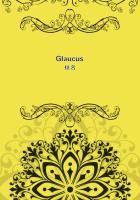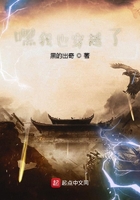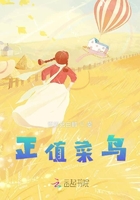"Don't listen--darling--darling!" Rosy cried out in anguish."Shut your ears--shut your ears!" And she tried to throw her arms around the high black head, and stifle all sound with her embrace.
"I don't want to shut them," was the answer."All the unkindness and misery are over for him, I ought to thank God--but I don't.I shall hear--O Rosy, listen!--I shall hear that to the end of my days."Rosy held her tight, and rocked and sobbed.
"My Betty," she kept saying."My Betty," and she could say no more.What more was there to say? At last Betty withdrew herself from her arms, and then Rosalie noticed for the first time that she wore the habit.
"Dearest," she whispered, "what are you going to do?""I was going to ride, and I am going to do it still.Imust do something.I shall ride a long, long way--and ride hard.You won't try to keep me, Rosy.You will understand.""Yes," biting her lip, and looking at her with large, awed eyes, as she patted her arm with a hand that trembled."Iwould not hold you back, Betty, from anything in the world you chose to do."And with another long, clinging clasp of her, she let her go.
Mason was standing by Childe Harold when she went down the broad steps.He also wore a look of repressed emotion, and stood with bared head bent, his eyes fixed on the gravel of the drive, listening to the heavy strokes of the bell in the church tower, rather as if he were taking part in some solemn ceremony.
He mounted her silently, and after he had given her the bridle, looked up, and spoke in a somewhat husky voice:
"The order was that you did not want me, miss? Was that correct?""Yes, I wish to ride alone."
"Yes, miss.Thank you, miss."
Childe Harold was in good spirits.He held up his head, and blew the breath through his delicate, dilated, red nostrils as he set out with his favourite sidling, dancing steps.Mason watched him down the avenue, saw the lodge keeper come out to open the gate, and curtsy as her ladyship's sister passed through it.After that he went slowly back to the stables, and sat in the harness-room a long time, staring at the floor, as the bell struck ponderously on his ear.
The woman who had opened the gate for her Betty saw had red eyes.She knew why.
"A year ago they all thought of him as an outcast.They would have believed any evil they had heard connected with his name.Now, in every cottage, there is weeping--weeping.
And he lies deaf and dumb," was her thought.
She did not wish to pass through the village, and turned down a side road, which would lead her to where she could cross the marshes, and come upon lonely places.The more lonely, the better.Every few moments she caught her breath with a hard short gasp.The slow rain fell upon her, big round, crystal drops hung on the hedgerows, and dripped upon the grass banks below them; the trees, wreathed with mist, were like waiting ghosts as she passed them by; Childe Harold's hoof upon the road, made a hollow, lonely sound.
A thought began to fill her brain, and make insistent pressure upon it.She tried no more to thrust thought away.Those who lay deaf and dumb, those for whom people wept--where were they when the weeping seemed to sound through all the world? How far had they gone? Was it far? Could they hear and could they see? If one plead with them aloud, could they draw near to listen? Did they begin a long, long journey as soon as they had slipped away? The "wonder of the world," she had said, watching life swelling and bursting the seeds in Kedgers' hothouses! But this was a greater wonder still, because of its awesomeness.This man had been, and who dare say he was not--even now? The strength of his great body, the look in his red-brown eyes, the sound of his deep voice, the struggle, the meaning of him, where were they?
She heard herself followed by the hollow echo of Childe Harold's hoofs, as she rode past copse and hedge, and wet spreading fields.She was this hour as he had been a month ago.
If, with some strange suddenness, this which was Betty Vanderpoel, slipped from its body----She put her hand up to her forehead.It was unthinkable that there would be no more.
Where was he now--where was he now?
This was the thought that filled her brain cells to the exclusion of all others.Over the road, down through by-lanes, out on the marshes.Where was he--where was he--WHERE?
Childe Harold's hoofs began to beat it out as a refrain.She heard nothing else.She did not know where she was going and did not ask herself.She went down any road or lane which looked empty of life, she took strange turnings, without caring; she did not know how far she was afield.
Where was he now--this hour--this moment--where was he now? Did he know the rain, the greyness, the desolation of the world?
Once she stopped her horse on the loneliness of the marsh land, and looked up at the low clouds about her, at the creeping mist, the dank grass.It seemed a place in which a newly-released soul might wander because it did not yet know its way.
"If you should be near, and come to me, you will understand,"her clear voice said gravely between the caught breaths, "what I gave you was nothing to you--but you took it with you.Perhaps you know without my telling you.I want you to know.When a man is dead, everything melts away.
I loved you.I wish you had loved me."













